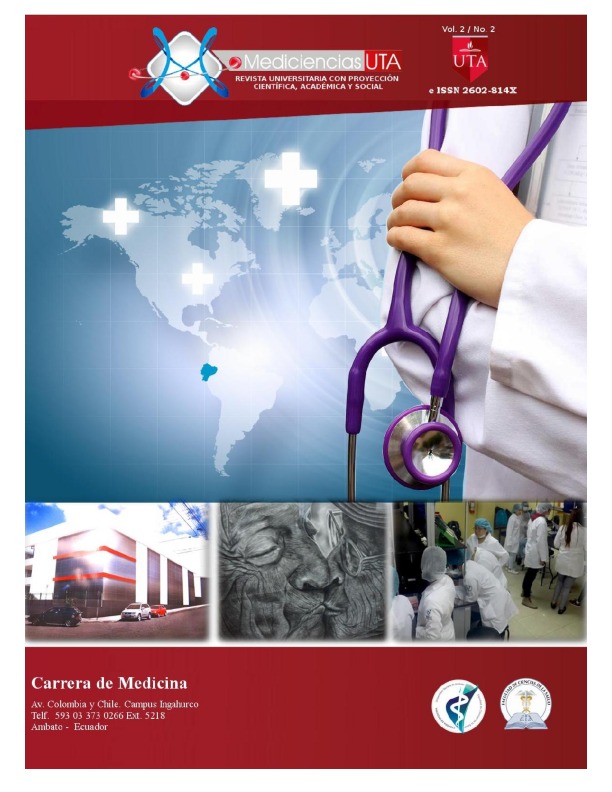Characterization of the consequences of pregnancy in adolescents in an indigenous population of Ecuador 2017.
Main Article Content
Abstract
Introduction: The lack of data on the characterization of indigenous peoples in the province of Tungurahua, on the consequences of pregnancy in adolescents and the increase of the index of pregnant women at an earlyage, justified the present study.
Objective: To describe the perception of the consequences of pregnancy in adolescents in a rural parish indigenous to the Andes of Ecuador.
Material and Methods: A descriptive cross-sectional study was carried out involving 247 students aged 14 to 24 years (= 16) from an Andean Educational Unit who were given a self-administered survey.
Results: Of the total number of participants, males (53.6%) reported knowing the consequences of pregnancy in adolescents. The perception of death in adolescents, secondary to some complication in pregnancy, are high in women (58.8% p = 0.01). Men think more in depression and women in the failure of the life project (p = 0.03). Women are thinking of limited opportunities and men being excluded (p = 0.01). The women stated that the best strategy for teen pregnancy prevention is counseling (p = 0.05). The questions that inquired about the relation between exclusion and being of indigenous race is greater in comparison with the mestiza (p = 0.04).
Conclusion: Health services should respond to the intercultural criteria of indigenous peoples. The intervention programs in the prevention of pregnancies in adolescents should not generalize procedures that do not conform to the culture of the people nor to their correct financing. The active participation of adolescents through the creation of baselines of research will contribute to reduce the problem effectively.



